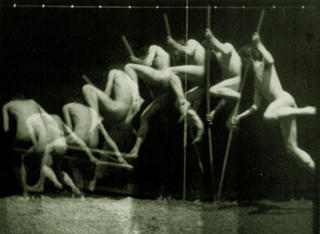 I attended Marshall Vandruff’s real good seminar “Artistic Temperaments and Achievement” last night. It covered a lot of ground that I have trodden in other workshops and classes, but last night’s treading was trodation with a good strong flashlight and a canny guide, as compared to treading in the dark with some smug bastard far behind you shouting “Go left! Now go right! You’re doing fine!…” – which has been a lot of my educational experience.
I attended Marshall Vandruff’s real good seminar “Artistic Temperaments and Achievement” last night. It covered a lot of ground that I have trodden in other workshops and classes, but last night’s treading was trodation with a good strong flashlight and a canny guide, as compared to treading in the dark with some smug bastard far behind you shouting “Go left! Now go right! You’re doing fine!…” – which has been a lot of my educational experience.
The fact that Marshall is himself an artist makes all the difference. Many art classes I have taken are presented by people who are teachers first and artists second. Many books and seminars about screenwriting I have been subjected to are presented by people who are teachers first and screenwriters second – if they are screenwriters at all. Robert McKee’s “Story”, Linda Seger’s “How To Make A Good Script Great”, Syd Field’s “Screenplay” are superior works of criticism and analysis – the screenwriting equivalent of anatomy textbooks. But ultimately those books can only teach anatomy. They cannot show you how to write. Only other writers can show you how to write, which is why it is vital to get into the same room with fellow writers, preferably writers who are better than you are, and to read – as has been discussed lately over at ScreenwritingLife.com – as many good writers as possible. I want a teacher who has done more of what I want to do than I have done – someone who has made more mistakes than I have.
“Can writing be learned?” you ask. Don’t be stupid. Of course it can. You might as well ask “Can pole vaulting be learned?” Not only can it be learned, it MUST be learned. Now whether, having learned pole vaulting, you’re a gold medal winner, or just some weirdo with a pole and a fence, is subject to the same mysterious factors that make some people alcoholics and cause others to be eaten by sharks. But I think it can only be truly learned from other writers. Most of the time we learn it through absorption. We read a line, we hear a story, and a bell goes off in our heads and we say “Aha! That’s it! That’s exactly what I want to do!” and we try to emulate that. It’s love really. We fall in love and we want to participate in and perpetuate that love. How much better it is to have a person who has also fallen in love, fallen in love more times than we have, to say, “I know how you feel. I felt that way. I still feel that way. Feeling that way is sure is trippy. Based on my experience, I suggest…”